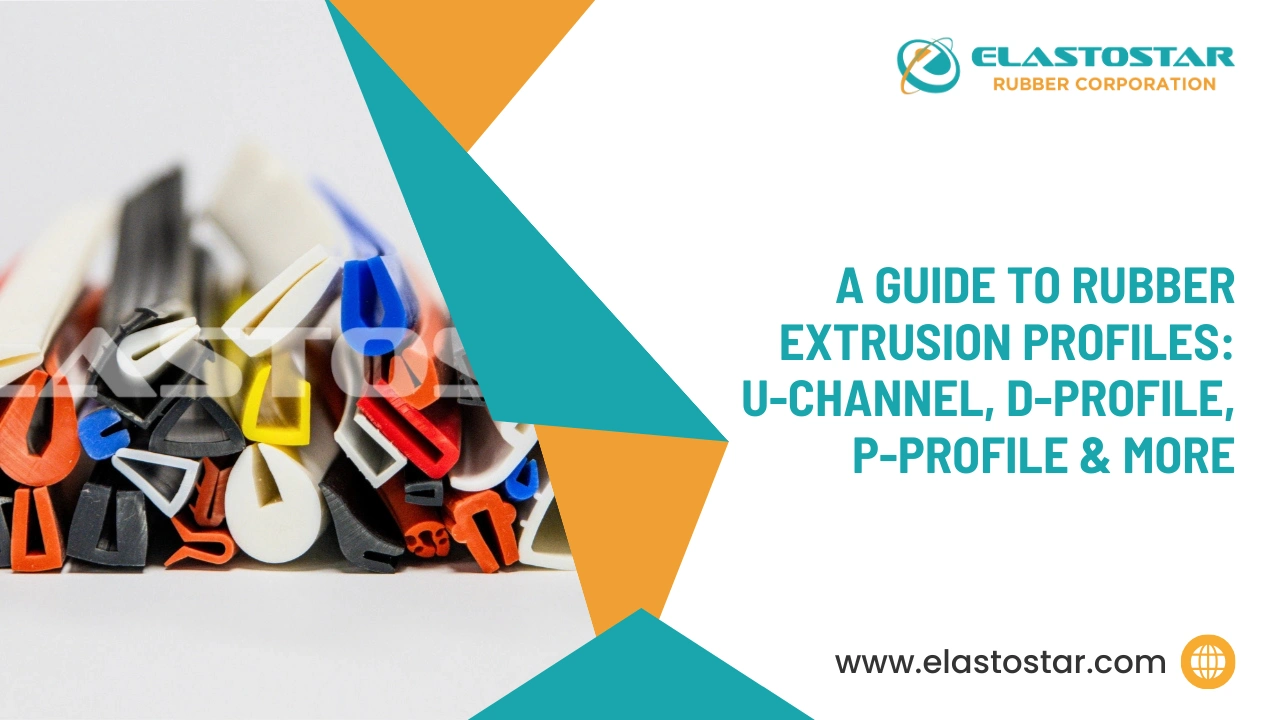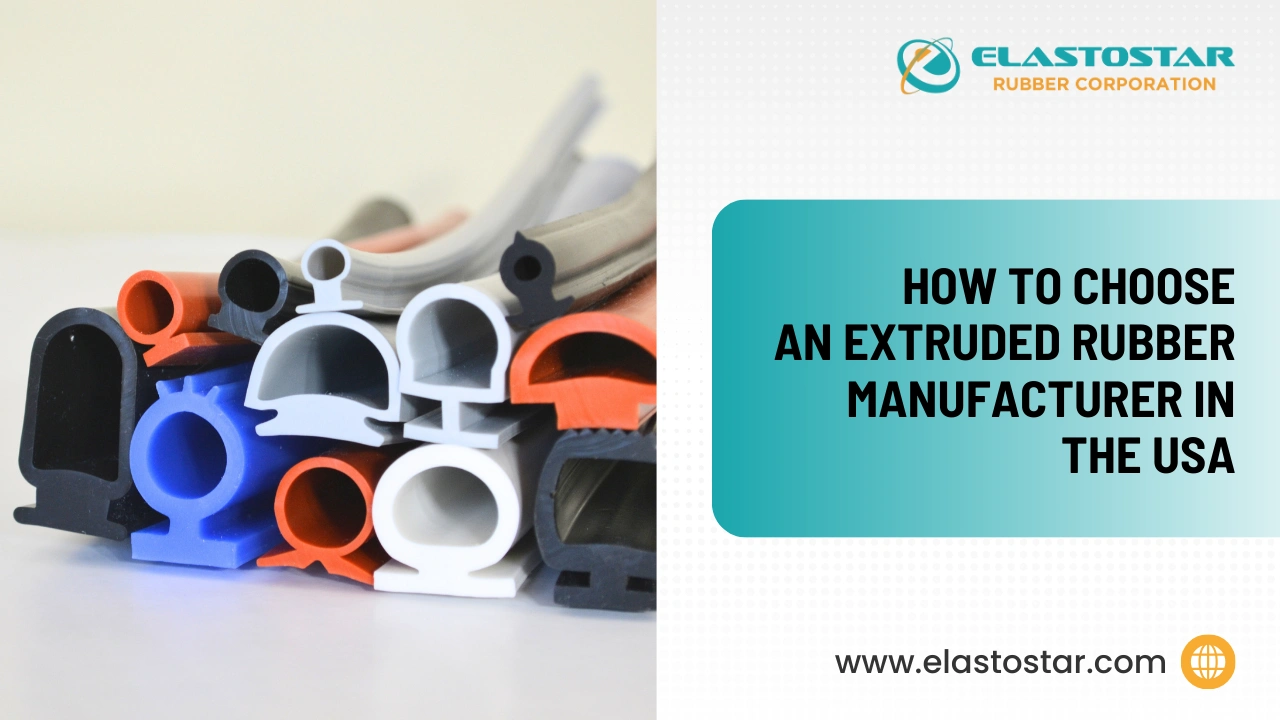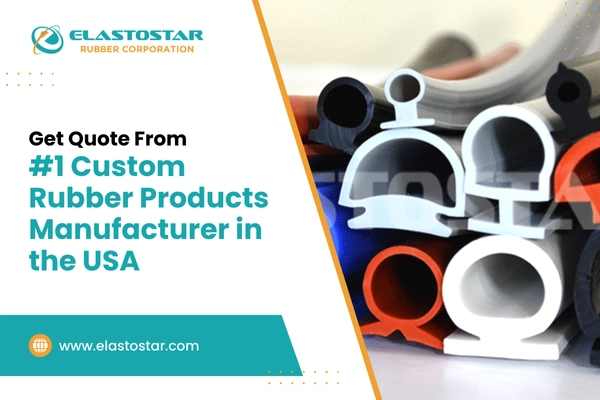Silicone rubber is a versatile material known for its flexibility, durability, and resistance to extreme temperatures. It is widely used across various industries, from automotive to pharmaceuticals, as part of silicone seal products. In electrical applications, silicone sponge rubber plays a crucial role as an effective electrical insulator, preventing the flow of electricity and ensuring safety in electrical systems.
As silicone rubber extrusion manufacturers, we understand the importance of this material in preventing electrical hazards. Its resistance to environmental factors like moisture, dust, and high heat makes it ideal for applications where performance and reliability are critical.
In this blog, we will explore the role of silicone rubber cord in electrical insulation and its benefits across industries.
What is Electrical Conductivity, and how does Silicone act as an Insulation?

Electrical conductivity refers to a material’s ability to allow the flow of electric current. Materials that permit electricity to pass through them easily, like metals, are called conductors. On the other hand, materials that resist the flow of electric current, such as rubber or wood, are known as insulators.
Electrically conductive silicone is a unique silicone modified to conduct electricity, whereas standard silicone acts as an insulator. This insulating property makes silicone a popular choice in electrical applications, where it helps protect against electrical shocks and ensures the safe operation of electrical systems.
Read More- Top Uses of Silicone Rubber in the Electrical & Lighting Industry
Is silicone rubber a conductor or an insulator?

In its natural state, silicone sponge is an insulator, meaning it resists the flow of electricity. This makes it ideal for electrical applications where safety is a priority, such as insulating wires, cables, and seals.
A sponge rubber tube’s insulating properties come from its molecular structure, which prevents the movement of electrical charges.
However, a conductive silicone cord can be created by adding conductive fillers, allowing the material to carry an electrical current. This modified silicone version is used in applications requiring insulation and controlled conductivity, such as sensors or electronic devices.
In short, gasket sponges are naturally insulators but can be adapted to conduct electricity with the right modifications.
Why is silicone rubber a good electrical insulator?
Due to their unique properties, silicone sponge seals are effective electrical insulators. Their high resistance to electrical flow helps prevent electrical currents from passing through.
This resistance results from its molecular structure, which does not allow the free movement of electrical charges.
- Flexibility
Sponge cord remains flexible even in extreme temperatures, making it adaptable for various applications in rubber seal extrusion. - Durability
It resists environmental factors like UV exposure, moisture, and temperature fluctuations, maintaining its insulating properties over time.
These qualities make sponge tube an ideal choice for safely insulating electrical components.
What are the Applications of Silicone Rubber as an Electrical Insulator?

Due to its excellent insulating properties, sponge rubber foam is widely used as an electrical insulator. Here are some common applications:
- Cables and Wires
Silicone rubber insulates wires and cables and safely transmits electricity by preventing short circuits and electrical hazards. - Gaskets and Seals
As a silicone rubber gasket manufacturer, we recognize silicone’s role in providing reliable seals and gaskets that protect sensitive electrical components from moisture, dust, and other contaminants. - High-Temperature Settings
The closed-cell sponge’s resistance to heat makes it ideal for use in high-temperature electrical environments where other materials might fail. - Custom Silicone Products
Custom silicone products are often manufactured to meet specific electrical insulation needs in industries such as telecommunications.
These applications demonstrate silicone rubber’s versatility and reliability in safeguarding electrical systems across various settings.
Read More– Top Uses of Silicone Rubber Seals in the Electrical Industry
Can Silicone Rubber Be Modified for Conductivity?
Yes, extruded silicone rubber can be modified to conduct electricity. By adding conductive fillers, such as carbon, graphite, or metal particles, the sponge tube can be transformed into conductive silicone, making it capable of carrying an electrical current.
This modification allows silicone to maintain flexibility and durability while offering controlled conductivity.
- Conductive Silicone
When modified, it becomes ideal for applications requiring flexibility and electrical conductivity, such as in flexible electronics, sensors, and touchscreens. - Conductive Rubber Tube
In the automotive industries or telecommunications, conductive rubber tubes shield cables or provide conductive paths in electronic systems.
These modifications make conductive silicone important for various electronic applications where insulation and conductivity are needed in a single material.
Silicone Rubber vs. Other Insulating Materials
Silicone rubber is a popular choice for electrical insulation, but how does it compare to other materials like Teflon and PVC? Let’s see.
| Property | Silicone Rubber | Teflon | PVC |
| Flexibility | Highly flexible, even in extreme temperatures | Rigid, not as flexible | Becomes brittle in cold conditions |
| Heat Resistance | handle -50°C to 230°C | High heat resistance, but less flexible | Degrades at higher temperatures |
| Electrical Insulation | Excellent in damp/wet conditions | Great insulation but rigid | Good insulation but not for extreme conditions |
| Common Applications | Extruded rubber products, gaskets, seals | Insulation in high-performance electronics | Cables, pipes, general electrical insulation |
What are the Benefits of Silicone Rubber as an Electrical Insulator?

Silicone rubber offers benefits for electrical insulation
- Temperature Resistance
It can handle extreme temperatures from -50°C to 230°C for silicone extrusion profiles in challenging environments. - Environmental Resistance
It resists moisture, UV rays, and chemicals, ensuring long-term protection for electrical components. - Durability
It is highly durable and maintains its insulating properties for conductive silicone tubes in various applications over time.
These qualities make silicone rubber a superior option for electrical insulation needs.
How to Choose the Right Silicone Rubber for Electrical Applications?
When selecting silicone rubber for electrical applications, consider the following factors:
- Size: Choose the right dimensions for your application. Silicone rubber rings can be customized for specific fittings and connections.
- Flexibility: The rubber’s flexibility suits your needs, especially if the material needs to bend or stretch.
For example, flexible rubber profiles from a reliable rubber profiles manufacturer may be essential for complex installations. - Temperature Tolerance: Match the silicone’s temperature range with the operating conditions. A sponge rubber gasket is ideal for applications that require high-temperature tolerance.
These factors will help you select the best silicone rubber for your electrical needs.
Why is Elastostar Rubber Corporation the Top Choice for Electrical Insulation Solutions?
Elastostar Rubber Corporation is a trusted leader in manufacturing high-quality silicone rubber products. We specialize in custom silicone solutions for electrical insulation and offer durable, flexible, and reliable insulation materials that can handle extreme conditions.
Our silicone rubber extrusion manufacturing expertise produces precise, high-performance products suitable for various electrical applications. We provide custom silicone products designed for durability and long-term performance.
With our unmatched industry knowledge, we deliver the best electrical insulation solutions customised to meet your needs. Contact us today to learn more and get started with your project.
Recommended Reads
- What Makes Silicone Rubber Popular for Use in the Lighting System?
- FDA Silicone Rubber: Meaning, Properties, and Considerations
- Top Silicone Rubber Extrusion Applications

Conclusion
Silicone foam cord is an excellent electrical insulator, offering outstanding flexibility, heat resistance, and durability. It protects against environmental factors such as moisture and dust for various electrical applications, including cables, seals, and gaskets.
As a reliable material, it gives long-lasting performance even under extreme conditions. High-temperature Silicone sponge provides the right solution for high-temperature environments or custom electrical needs. You can enhance your electrical systems’ efficiency and durability by choosing the right silicone gasket
FAQs
Is silicone rubber a conductor or an insulator?
Silicone rubber is an insulator, meaning it does not conduct electricity. This makes it a popular choice for electrical insulation. Elastostar offers high-quality silicone rubber gaskets and silicone rubber seals for various electrical applications. Contact us for more information.
Is silicone a good conductor of electricity?
No, silicone is not a good conductor of electricity. It is an effective insulator, which is why it is commonly used in electrical and electronic components. Elastostar Rubber Corporation provides custom silicone products specifically designed for electrical insulation.
Can I use silicone to insulate wires?
Yes, silicone is widely used for insulating wires, as it offers flexibility, high-temperature resistance, and durability. Elastostar Rubber Corporation manufactures silicone rubber tubing and extruded rubber profiles that are ideal for wire insulation. Contact us to learn more about our silicone solutions.
Does silicone rubber conduct heat?
While silicone rubber has good heat resistance, it is not a strong conductor of heat. This makes it ideal for use in high-temperature applications while providing excellent insulation.
Can rubber conduct electricity?
Rubber is generally an inefficient conductor of electricity. However, due to its ability to prevent electrical flow, rubber is often used in rubber gaskets and seals for electrical insulation.
What is the electrical conductivity of silicone rubber?
Silicone rubber has very low electrical conductivity, making it a great choice for electrical insulation. Elastostar Rubber Corporation manufactures high-performance conductive and silicone rubber products for various electrical applications.




